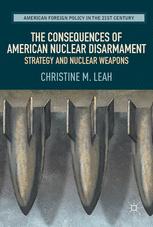

Most ebook files are in PDF format, so you can easily read them using various software such as Foxit Reader or directly on the Google Chrome browser.
Some ebook files are released by publishers in other formats such as .awz, .mobi, .epub, .fb2, etc. You may need to install specific software to read these formats on mobile/PC, such as Calibre.
Please read the tutorial at this link: https://ebookbell.com/faq
We offer FREE conversion to the popular formats you request; however, this may take some time. Therefore, right after payment, please email us, and we will try to provide the service as quickly as possible.
For some exceptional file formats or broken links (if any), please refrain from opening any disputes. Instead, email us first, and we will try to assist within a maximum of 6 hours.
EbookBell Team

4.1
30 reviewsThis book is about the future of nuclear weapons, geopolitics, and strategy. It examines the legacy of nuclear weapons on US thinking about some concepts of strategy and geopolitics, namely deterrence, extended deterrence, alliances, and arms control. The purpose of this is to demonstrate just how fundamentally nuclear weapons have influenced American thinking about these concepts. It argues that, given the extent of nuclear weapons' influence on these concepts and the implications for international security, further reductions beyond current Strategic Arms Reduction Talks (START) levels, and the more absolute idea of nuclear disarmament, may not necessarily be prudent ideas. Nuclear weapons have contributed to the avoidance of major war between states, made alliances more credible and last longer, and have made arms control relatively easier to conceptualize and manage. As such, the author argues, these concepts may become even more difficult to manage in a world where nuclear weapons are marginalized.